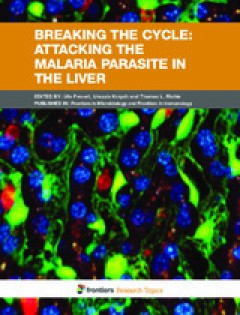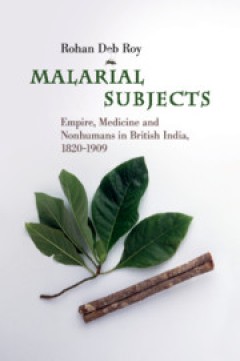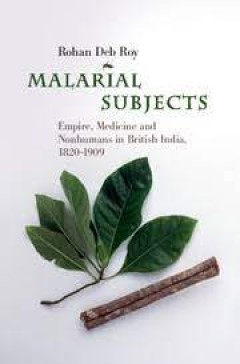Filter by

May we make the world :gene drives, malaria, and the future of nature
An in-depth look at genetic alteration in the natural world and the oppositions to it, seen through the case study of a gene drive for malaria. May We Make the World is an engaging reflection on the history, nature, goal, and meaning of using a new technological idea -- CRISPR-based genetic engineering -- to alter the genome of the mosquito that carries malaria. This technology, called a "gene …
- Edition
- -
- ISBN/ISSN
- 0262376997
- Collation
- 1 online resource (408 pages).
- Series Title
- -
- Call Number
- -

Breaking the cycle : Attacking the malaria parasite in the liver
Plasmodium falciparum malaria remains one of the most serious health problems globally. Immunization with attenuated parasites elicits multiple cellular effector mechanisms capable of eliminating Plasmodium from the liver. However, malaria liver stage immunity is complex. The anatomic site of priming of naive Plasmodium-specific CD8 T cells, be it in the lymph nodes draining the site of Plasm…
- Edition
- -
- ISBN/ISSN
- -
- Collation
- -
- Series Title
- -
- Call Number
- 616 BRE

Malarial Subjects: Empire, Medicine and Nonhumans in British India, 1820-1909
Malaria was considered one of the most widespread disease-causing entities in the nineteenth century. It was associated with a variety of frailties far beyond fevers, ranging from idiocy to impotence. And yet, it was not a self-contained category. The reconsolidation of malaria as a diagnostic category during this period happened within a wider context in which cinchona plants and their most va…
- Edition
- -
- ISBN/ISSN
- 9781316771617
- Collation
- -
- Series Title
- -
- Call Number
- 614.532 ROY m

Malarial Subjects
Malaria was considered one of the most widespread disease-causing entities in the nineteenth century. It was associated with a variety of frailties far beyond fevers, ranging from idiocy to impotence. And yet, it was not a self-contained category. The reconsolidation of malaria as a diagnostic category during this period happened within a wider context in which cinchona plants and their most va…
- Edition
- -
- ISBN/ISSN
- -
- Collation
- -
- Series Title
- -
- Call Number
- 610
 Computer Science, Information & General Works
Computer Science, Information & General Works  Philosophy & Psychology
Philosophy & Psychology  Religion
Religion  Social Sciences
Social Sciences  Language
Language  Pure Science
Pure Science  Applied Sciences
Applied Sciences  Art & Recreation
Art & Recreation  Literature
Literature  History & Geography
History & Geography